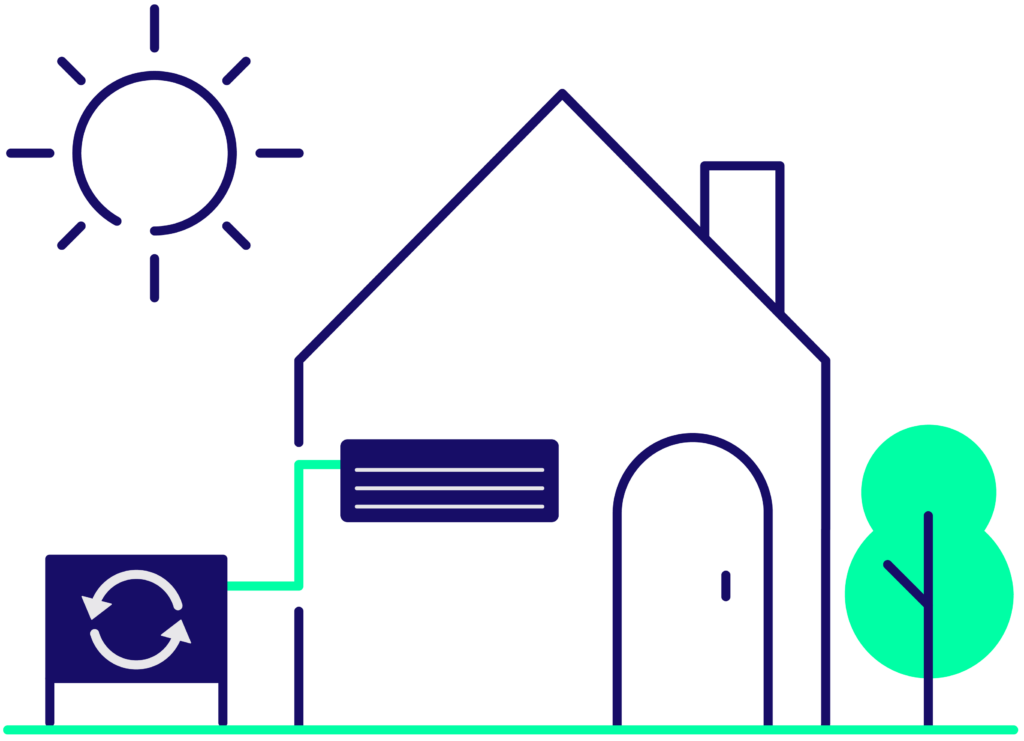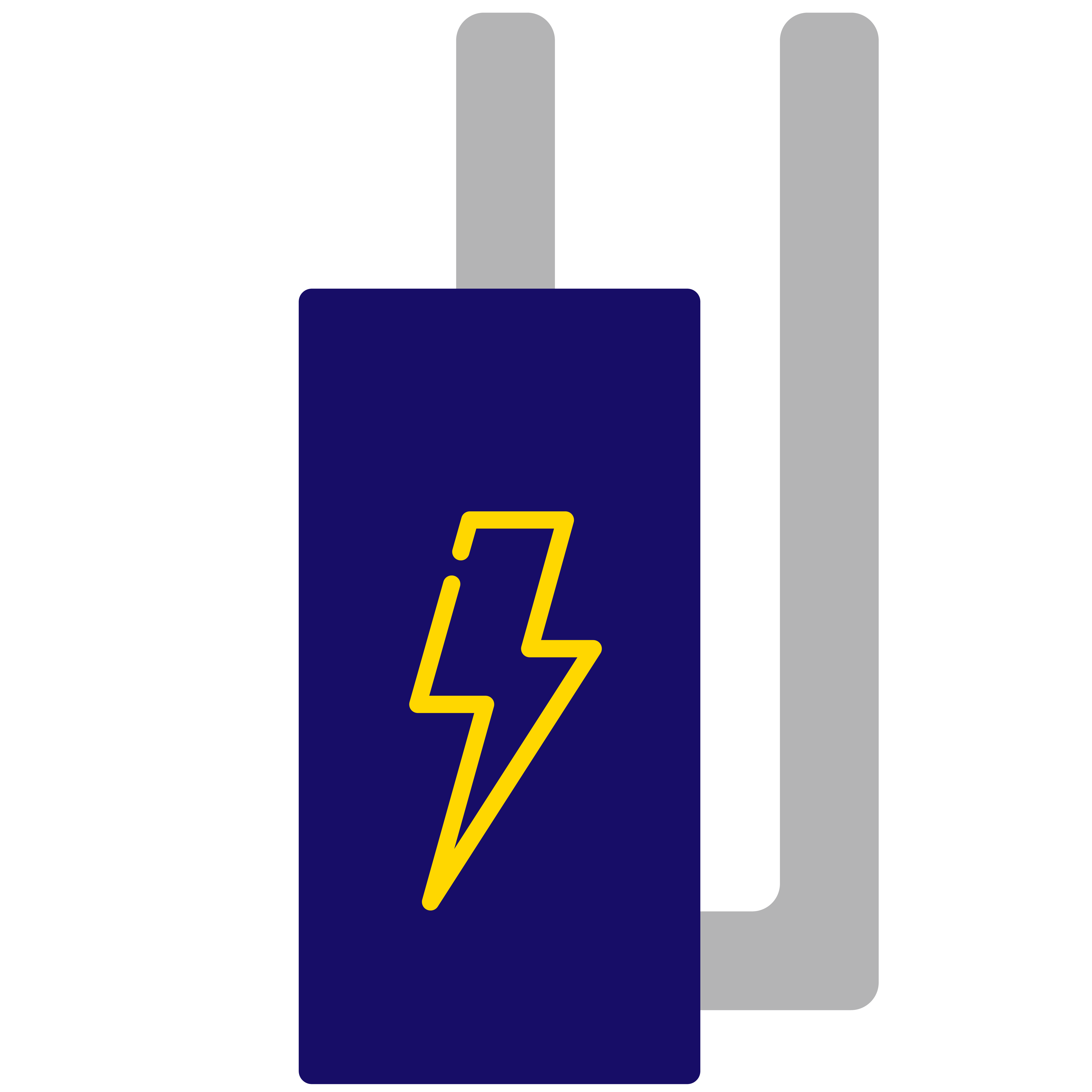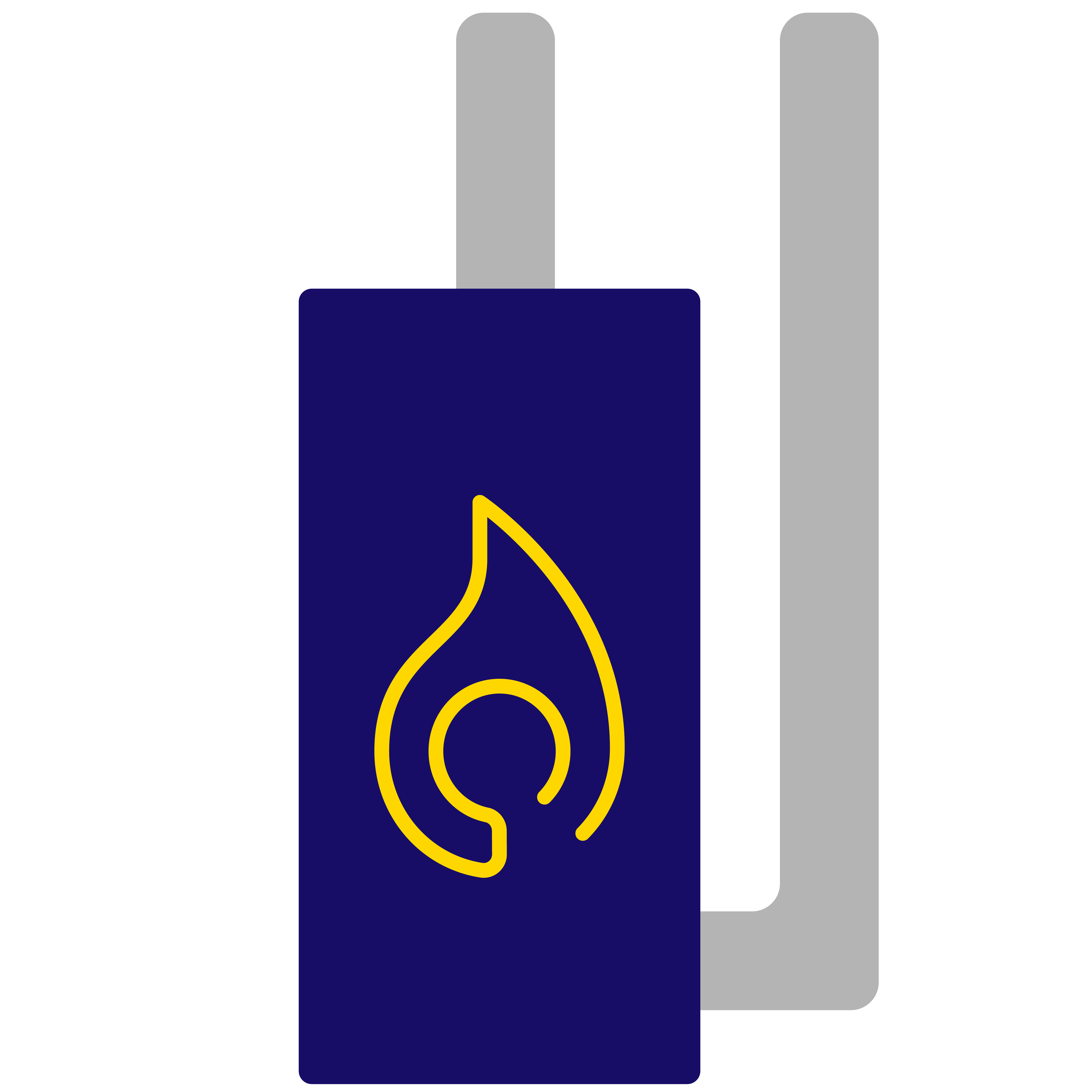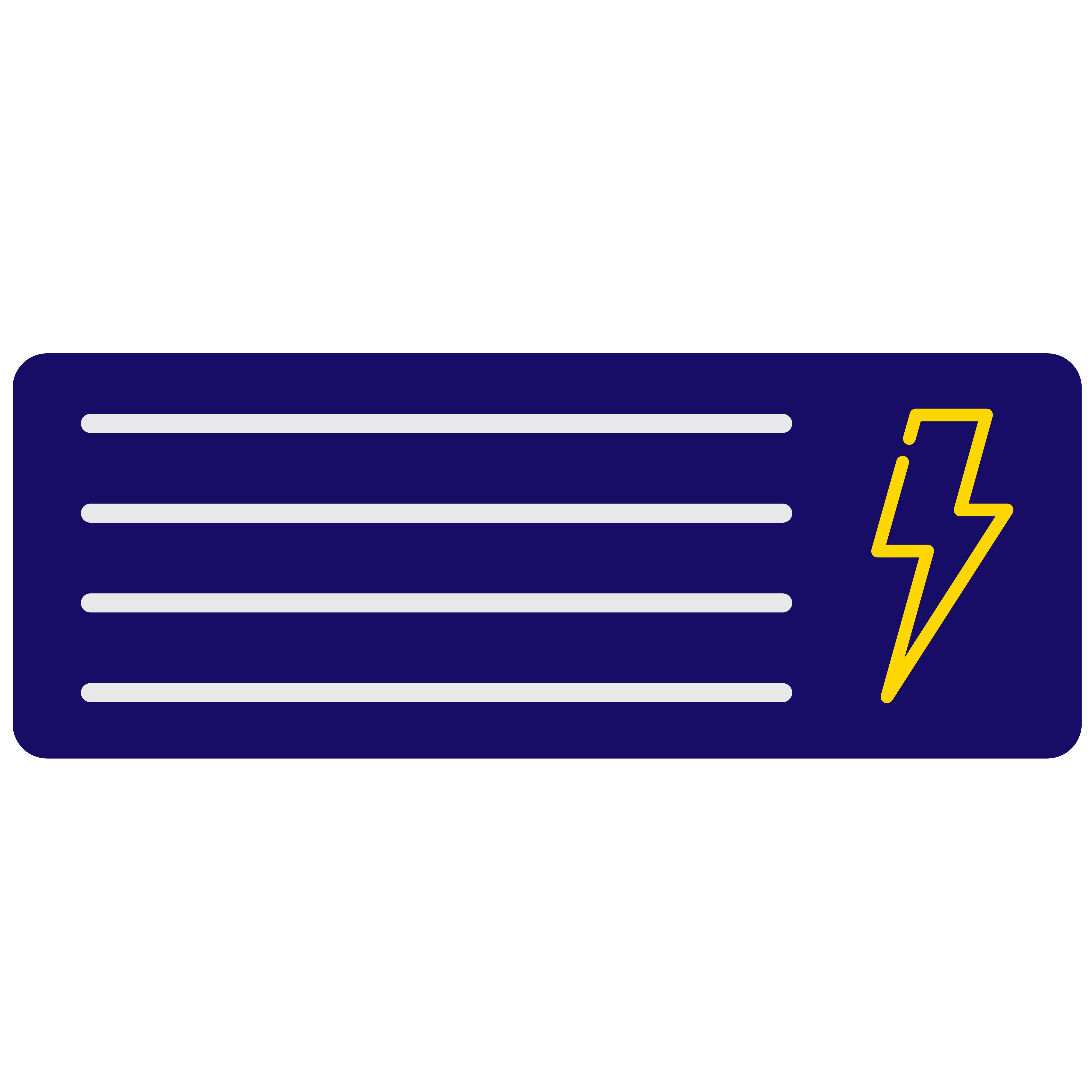Options for Your Home
There’s a heat pump solution for every home
There are many options and styles of heat pumps available, so they can work in nearly any home. The heat pump system that will be best for you will largely depend on whether your home currently has central ductwork.
Ducted Heat Pumps

Heat pump outdoor unit
Ductwork
Heat pump indoor unit
Ducted heat pumps use the same ductwork as a furnace or central air conditioner to deliver whole home heating and cooling. If you have vents or grates that deliver warm or cool air, your home has ductwork. A ducted heat pump will serve the same areas your ductwork currently serves.
Ductless Mini-Split Heat Pumps

Heat pump outdoor unit
Heat pump indoor unit
Refrigerant lines
Ductless mini-split heat pumps use indoor units for delivering conditioned air – no ductwork needed. A highwall indoor unit is the most typical style with other options available. Ductless mini-split heat pumps provide you with zonal control by directly conditioning an area or room, so you have flexibility to heat or cool only the spaces you want. They can be a helpful addition to any home to serve stubbornly hot or cold spots and can work well with new additions to your home if you don’t want to add ductwork.
Ensuring your home has the proper insulation, air sealing and duct sealing is a great first step to increase your home’s efficiency. ComEd offers free home energy assessments to help you save energy and enhance the comfort of your home. Certain eligible customers may also qualify for free weatherization improvements such as insulating and air sealing your attic, foundation, walls and ducts.
Know your goals
Everyone’s goals are different. Knowing what’s important to you can help you decide if a heat pump is right for your home. Consider which of these goals are most important to you and talk with a heat pump-trained contractor who can advise you about the options that best meet your needs and goals.
Goal 1: I want to improve the comfort of my home
A heat pump delivers more consistent heating and cooling to your home. A heat pump mixes conditioned air more efficiently than traditional heating and cooling sources so you have fewer hot or cold spots in your home. You can also add ductless mini-splits to areas of your home that are consistently difficult to heat or cool and more efficiently heat or cool only the areas you want.
Goal 2: I want to save money on my energy bill
Heat pumps can be up to four times more efficient than standard heating or cooling equipment, which means you could save money on your energy bill.* Plus, you can get both heating and cooling from one system.
Depending on your existing heat fuel source, a heat pump may increase your heating costs in the winter, but this could be offset by savings on your cooling costs in the summer. See the Savings Calculator to get an idea of how a heat pump might work for you.
Goal 3: I want to help stop climate change
Heat pumps can be an important way to reduce your home's carbon footprint and help save the planet. You can greatly reduce the amount of energy you use to keep your home comfortable, which helps make our homes and our environment cleaner and more sustainable.
*Source: RMI, “Now Is the Time to Go All In on Heat Pumps“
How Do I Know Which Heat Pump System Is Right for My Home?
A heat pump-trained contractor can help you determine which system is the right one for you based on your goals and your home’s set up, but here are some general guidelines to help you understand your options.
 Your home has existing ductwork
Your home has existing ductwork You have an existing home or are building a new home
You have an existing home or are building a new homeExplore Fuel Types

All-Electric
May be best if:
 Your current heater is electric or if you want to switch from fossil fuels
Your current heater is electric or if you want to switch from fossil fuels Indoor air comfort and efficient year-round heating and cooling are important to you
Indoor air comfort and efficient year-round heating and cooling are important to you Reducing your carbon footprint is important to you
Reducing your carbon footprint is important to you
Dual-Fuel
May be best if:
 Your current heater is gas or propane
Your current heater is gas or propane You want a more efficient heating and cooling system but want supplemental fossil fuel heating
You want a more efficient heating and cooling system but want supplemental fossil fuel heating Your home doesn’t have existing ductwork and you don’t wish to install it
Your home doesn’t have existing ductwork and you don’t wish to install it
 You want to heat or cool a new addition or a specific part of your home
You want to heat or cool a new addition or a specific part of your home You have an existing home or are building a new home
You have an existing home or are building a new homeExplore Fuel Types

All-Electric
May be best if:
 Your current heater is electric or if you want to switch from fossil fuels
Your current heater is electric or if you want to switch from fossil fuels Indoor air comfort and efficient year-round heating and cooling are important to you
Indoor air comfort and efficient year-round heating and cooling are important to you Reducing your carbon footprint is important to you
Reducing your carbon footprint is important to you
Dual-Fuel
May be best if:
 Your current heater is gas or propane
Your current heater is gas or propane You want a more efficient heating and cooling system but want supplemental fossil fuel heating
You want a more efficient heating and cooling system but want supplemental fossil fuel heating You are building a new home
You are building a new home You are looking for the most efficient system
You are looking for the most efficient system Indoor air comfort and efficient year-round heating and cooling are important to you
Indoor air comfort and efficient year-round heating and cooling are important to you Reducing your carbon footprint is important to you
Reducing your carbon footprint is important to youTalk with a Heat Pump-Trained Contractor
A heat pump-trained contractor can help you choose the right heat pump for your home.
Check for Incentives
Work with your heat pump-trained contractor to find options that qualify for incentives and financing.
